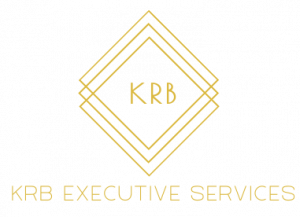


 Based in RVA, Katrina Butler is the founder and CEO of KRB Executive Services LLC – a virtual support agency that works solely with women entrepreneurs. Starting her business right at the beginning of the pandemic, this self-proclaimed “chaos organizer” has been sharpening her skills and has joined the ranks of Dubsado Certified Specialists and Asana Services Partners.
Based in RVA, Katrina Butler is the founder and CEO of KRB Executive Services LLC – a virtual support agency that works solely with women entrepreneurs. Starting her business right at the beginning of the pandemic, this self-proclaimed “chaos organizer” has been sharpening her skills and has joined the ranks of Dubsado Certified Specialists and Asana Services Partners.
She spends her days helping her clients increase their productivity & smash their business goals. She is known for her kind-hearted yet no-nonsense approach to organization, creating & implementing systems, and pre-planning. She enjoys taking the vision and ideas that her clients have and helping them become a reality.
Connect with Katrina on LinkedIn and follow KRB Executive Services on Facebook.
What You’ll Learn In This Episode
- Mindset when moving from Employee to Entrepreneur to Business Owner
- Business Systems & Automation
- Budget-friendly small business resources
This transcript is machine transcribed by Sonix
TRANSCRIPT
Intro: [00:00:03] Broadcasting live from the Business RadioX studios in Richmond, Virginia. It’s time for Richmond Business Radio. Now here’s your host.
Lee Kantor: [00:00:15] Lee Kantor here another episode of Richmond Business Radio and this is going to be a good one. But before we get started, it’s important to recognize our sponsor War Cry Consulting Solutions, supporting women to lean into their purpose, craft their vision and crush their goals. Today on Richmond Business Radio, we have Katrina Butler and she is with KRB Executive Services. Welcome, Katrina.
Katrina Butler: [00:00:44] Thank you, Lee, for having me. How are you?
Lee Kantor: [00:00:46] I am doing well. I am so excited to learn what you’re up to. Tell us about KRB Executive Services. How are you serving folks?
Katrina Butler: [00:00:53] Sure. So Crab Executive Services is a virtual support agency for female entrepreneurs and business owners with service based businesses. So basically, we kind of offer online business management, which is kind of handling those day to day operations and of course like helping them with invoicing or emails or scheduling or recruiting new team members, helping them with events and social media and those things. And then of course also offering project management for some of my monthly clients. But usually I just have those for people that are having either a product or an event launch or things like that to help them get things in place.
Lee Kantor: [00:01:37] So what’s your back story? How did you get involved in this line of work?
Katrina Butler: [00:01:41] So I actually started my business a few years ago, though it wasn’t a business, it was just something I was doing on the side, you know, helping my mom, actually, with her own business while I was still, you know, employed regular 9 to 5. And then a bit before the whole lockdown part of the pandemic happened. I’ve actually laid off from my job. And so I was actually encouraged to really, like, go for it full time, just putting everything in here and, you know, just trying to figure out like what I can do in that space because in that virtual assistant space, it’s really a broad term. There’s so many things that people can do remotely to be of service and figuring out who it is that I really want to serve. But yes, so that was February of 2020, and I’m still here going full time in my business.
Lee Kantor: [00:02:34] Now, when did you start getting clues like, Hey, this thing’s going to work out? I think I have what it takes and I think there’s enough business out there to keep me and my team busy.
Katrina Butler: [00:02:45] So I would say probably in there, maybe like December of 2020, I was like, okay, this is going to work. Because I think also at the beginning, you know, I don’t think any of us realize how long this pandemic was going to last. And I was like, Oh, it’ll be over soon, and then I’ll just find a new job. So I was just doing temp stuff. And then in May of 2020, I was in a car accident and totaled my vehicle. So I was like, okay, well there goes going out to work, so I’m going to be stuck at home. So there’s no, you know, I really have to go after it. So in that span of like seven months of figuring out, okay, how do I get my first client to actually be like, okay, I’m really booking people now. So maybe about December of 2020, January of 2021, I was like, okay, yeah, I can do this.
Lee Kantor: [00:03:32] Now, how was that early time when you before you had kind of a steady flow of business? How do you how do you start an online virtual assistant executive service business without, you know, having kind of a, you know, not being a celebrity to have a whole pool of people to tap into? How do you get the ball rolling at the very, very beginning?
Katrina Butler: [00:03:54] So the first thing I did after, you know, of course, looking online was I found some groups on Facebook of other people that were already in this industry and, you know, learning, okay, what do I need to do first? Okay, start, you know, the basics, get a website, you know, start creating a portfolio of things that you’ve already done, getting a business license, as you know. And Virginia didn’t really, you know, cost as much as, you know, most people think it would. Getting registered, just taking those steps of what to do. It definitely helped to get a score mentor to help with those initial steps of starting a business because you know you want to be above board and then just learning from other people, you know, asking questions and groups and learning from others mistakes and figuring out, you know, what works for me and what doesn’t. And it’s definitely been it’s definitely been a learning experience, figuring out, you know, who I want to work with, what I was going to offer, you know, what are you going to price things at? Because I never run a business before. And unfortunately, it’s not exactly something that they teach in like school. So you just kind of have to learn as you go.
Lee Kantor: [00:05:08] Now, how important was it kind of shifting the mindset from going from somebody who worked? Or somebody else to being your own boss, to now having clients or a team you have to manage. Those are all slightly different kind of ways to approach the mental part of the equation.
Katrina Butler: [00:05:27] Yeah, so actually I would say that was kind of the hardest part for me, honestly. One, I’m a really big introvert, so having to like, put yourself out there and be like, Hey, this is what I can do and I can help you, you know, do this. Like pick me with that. Just kind of having to learn how to sell yourself without looking like you’re selling was definitely a big thing, but also trying to shift away from that employee. Mindset, I guess, of, okay, well, these are the hours that I work. Usually, you know, you’re at a job, they set your hours, they tell you when you’re going to work and how much you’re going to make and what your benefits are. And then you agree to that for your time versus and this you’re letting them know, this is what I charge. This is when I work, when I’m available, and having to be bold and then keeping those boundaries, you know, telling yourself, okay, I don’t work for them, I’m working with them, providing a service. That was honestly one of the hardest shifts for me. But once it clicked, it, it clicked.
Lee Kantor: [00:06:36] Now, once once you kind of made that shift in your mind, did it change how you approached kind of the day to day thing? Because, like, if you’re working for somebody else, one way to look at it is my boss is my client, and I am providing a service for my client, which is my boss. Or if you’re an entrepreneur, you know, you now have 20 bosses because each of your clients or your boss.
Katrina Butler: [00:07:03] Um, yeah. So when I when I approach it, I don’t think of my clients as my boss. I kind of approach it and approach them, like from the very beginning of like, you know. It’s kind of like having a part of their business without being a business partner. Like, my goal is to help you succeed and be great and, you know, increase your productivity, increase your revenue and things like that based off of, you know, whatever systems they have in place or if they’re honestly just starting to delegate. Teaching them how to build both systems. So I think of it more of a partnership than, you know, my client is my boss.
Lee Kantor: [00:07:49] Do you. So your superpower became kind of how to develop and execute business systems and automation.
Katrina Butler: [00:07:57] Yeah. So my background initially is in hospitality. So I actually have a degree in culinary arts. So I don’t know if you ever seen a behind the scenes of a kitchen. It kind of like flows. And the first thing that they teach you on your first day of culinary school is about mise en place, which means everything in its place. And so I’ve always been a planner, like as a personality train organizer. I love spreadsheets and having things in order, things having a flow, everything having a place. And so when I learned that that was something that you could do in this virtual industry of helping people get their business processes in place so that things can be repeatable without always having to be hands on. And I was just like the light bulb went off and I was like, okay, this is what I want to do with this.
Lee Kantor: [00:08:47] Now, any advice for business people out there right now? What are some easy kind of systems they could put in place, or at least some of the foundational elements that if they were to do this, they would at least they would be prepared to have a good conversation with you if they needed more help, but at least would get them off on the right foot.
Katrina Butler: [00:09:06] Yeah. So I do have like a page of resources on my website, but off the top of my head, my main two or actually I’ll give you three that I use in my business are DeSoto, which is a CRM and it doesn’t cost a lot per month. I use a sauna which even has a really great free plan, and that’s a project management tool for organizing and planning events and launches and tasks that need to be done repeatedly. And then I also use planner Lee, which is kind of similar. It’s a social media scheduler and planner, which, you know, a lot of people use. Metta Business Suite. The reason I use Planner Lee is because not only can I post to Instagram and Facebook, but also Twitter and Pinterest, and they also just in these past couple of months have added the feature where you can auto post your reels, which is a really big timesaver as we know that Instagram is shifting away from images to video and these past couple of years. So I would say having at least some of those things in order having a CRM, a project management tool and a system for scheduling your your content and things like that are some of the things that you can do when you’re just starting out that don’t cost a lot of money.
Lee Kantor: [00:10:30] And then you decide as part of your business to not just start using certain tools, but you become kind of deeper in their ecosystem. You become a certified or you become a partner with them.
Katrina Butler: [00:10:42] Yes. Yes, I did. So when we were talking about how I was getting started in this business and those Facebook groups, one of them had this training like Vault, and you could go in there for, you know, a flat rate each month and go through trainings. And that’s where I learned about DeSoto. And I was like, okay, I need this for my business. And as I was learning it just by doing, I was like, okay, I love this. And so I went through their certification process and exam to become a certified specialist. And then I was using a sauna. I’m like, Oh, this is great. You know, let me go through their thing. And they used to be called certified pros. They’re now called Asana partners. And I would be either for services or solutions. So I just was like, I love this so much. I was like, I can teach people about it now and help them implement that in their business, too.
Lee Kantor: [00:11:36] So now can you share can you share a story where maybe you started working with someone and they were in a state of chaos and you were able to come in and help organize them and put them on a better footing and maybe help take their business to a new level. You don’t have to name the name of the business, but maybe share the challenge they had and how you were able to help them.
Katrina Butler: [00:11:57] Yeah, so I had a client that kind of had a few different brands going on. Of course, you know, women that are juggling, especially with kids as well too, and trying to have, you know, get these businesses off the ground. I actually met her in 2020, like in the summer, so during the middle of the pandemic. And just. Needing some help with taking her business virtual. As a lot of businesses we’re doing and then just kind of separating out those brands to say, okay, so this is what you need for this business. So each brand has to have their own social media account for Facebook and Instagram, not all together, and this is how you can get things scheduled and this is where we can go and plan the events that you have ahead of time and what needs to happen before these events take place, like booking a location or, you know, a food menu or how much you’re going to charge. And do you need to create a registration form or landing page, really just trying to get those in order so that it can be repeatable. So if you have a workshop one time, once you have it planned out, you can do it over and over and over again. And so that’s something that we have been working towards these past couple of years together, getting those three businesses together.
Lee Kantor: [00:13:15] And is that part of the deliverable you offer your clients as not only do you do the work, but you give them kind of a playbook on how to replicate this in the future?
Katrina Butler: [00:13:23] Yeah, so I take what they have or what they want and then build upon it. So some people may or may not be familiar with the term SOPs, which is your standard operating procedure, kind of like writing that out. So if something were to happen, you know, down the line and we’re not working together anymore, you still have basically a playbook for your business. You can tell people, This is my business, this is how it runs so that they can get into it’s kind of like a training manual, but digital.
Lee Kantor: [00:13:54] Now, if somebody wants to learn more about your work, get on your calendar or just peruse some of the resources you have. Is there a website?
Katrina Butler: [00:14:03] Absolutely. They can go to my website, CRP, Executive services dot com, where they can view services, they can review my resources page and they can book a consultation call with me, which is, you know, a free call just to learn more about what we’re doing or if they already know that they need help with their business, then we can chat about that too.
Lee Kantor: [00:14:25] Well, Katrina, thank you so much for sharing your story today. You’re doing such important work and we appreciate you.
Katrina Butler: [00:14:30] Thank you, Lee, for having me.
Lee Kantor: [00:14:32] All right. This is Lee Kantor. We’ll see you all next time on Richmond Business Radio.














